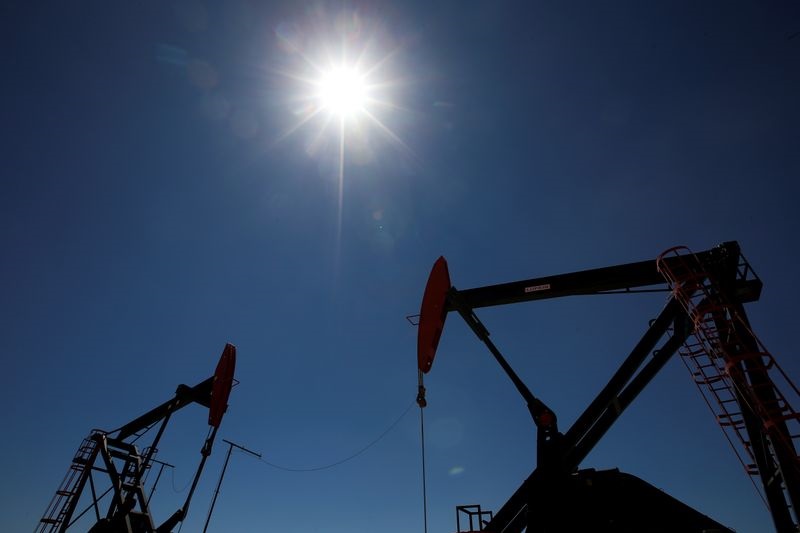By Muyu Xu
(Reuters) -Oil retreated on Thursday from multi-month peaks hit in the previous session as higher inventory and sluggish economic data from China raised concerns about global fuel demand.
fell 9 cents, or 0.1%, to $87.46 a barrel by 0408 GMT, after settling at its highest since Jan. 27 in the previous session.
West Texas Intermediate crude (WTI) dropped 6 cents, or 0.1%, to $84.34, after settling at its highest since November 2022.
U.S. crude inventories rose by 5.9 million barrels in the last week to 445.6 million barrels, compared with analysts’ expectations in a Reuters poll for a 0.6 million-barrel rise, U.S. Energy Information Administration data showed on Wednesday.
U.S. crude oil exports fell by 2.9 million barrels per day last week, the steepest fall on record, to 2.36 million barrels per day (bpd), according to the data. But the market is going to expect crude exports to go up because of the U.S. crude futures and Brent spread, said Phil Flynn, an analyst at Price Futures Group.
Weighing on market sentiment, the consumer sector in China fell into deflation, and factory-gate prices extended declines in July, as the world’s second-largest economy struggled to revive demand.
“A 5% growth forecast from China, which looked way too modest to digest at the beginning of 2023 has started to look way too optimistic as China is failing to hold economic revival post-COVID,” said Priyanka Sachdeva, senior market analyst from Phillip Nova.
The market is awaiting July’s Consumer Price Index (CPI) from the United States, due on Thursday, which will indicate the Fed’s future monetary policy. Market watchers expected the CPI to show a slight year-over-year acceleration, while on a month-to-month basis, consumer prices are seen increasing 0.2%, the same rate as in June.
Meanwhile, Chevron (NYSE:) and Woodside (OTC:) Energy Group said on Thursday they are holding talks with unions to avert threatened strikes at gas facilities that together supply about 10% of the global liquefied (LNG) market.
Concerns over LNG supply drove European gas prices to a nearly 2-month high on Wednesday and buoyed the demand outlook for diesel as alternative fuel.
However, oil prices remained supported by supply tightness worries as tensions between Russia and Ukraine in the Black Sea region could threaten shipment of Russian oil.
“Oil prices have been resilient to a weak economic showing out of China in recent weeks, with market participants choosing to place their focus on the tighter supplies conditions from Saudi Arabia and Russia’s output cuts to continue their unwind from previous bearish positioning,” wrote Yeap Jun Rong, market analyst at IG, in a note.
Top exporter Saudi Arabia’s plans to extend its voluntary production cut of 1 million barrels per day for another month to include September. Russia also said it would cut oil exports by 300,000 bpd in September.
Read the full article here





